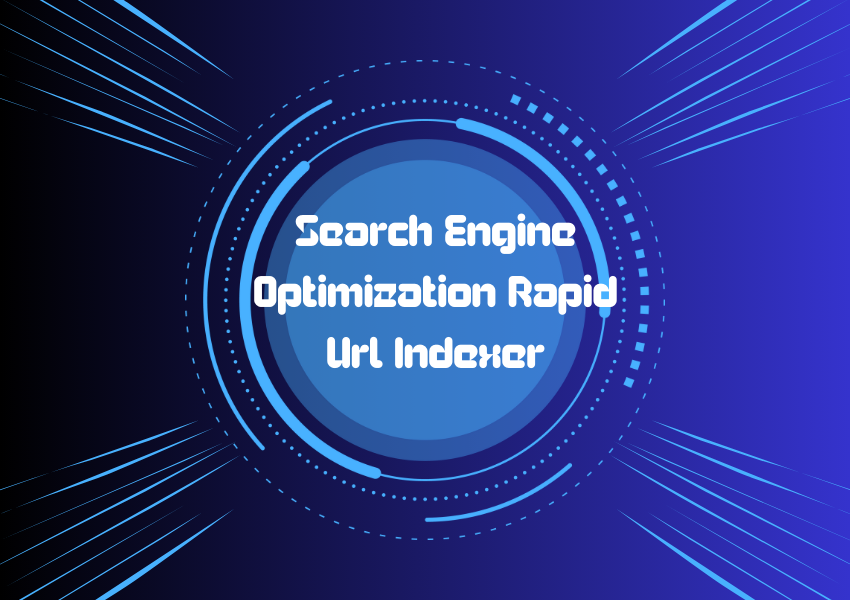
In today’s digital landscape, speed and efficiency are essential for businesses aiming to stay ahead in the competitive market. One crucial aspect of this is ensuring that web pages are indexed quickly by search engines like Google. This is where a Search Engine Optimization Rapid URL Indexer plays a vital role. In this blog, we will dive deep into what this tool is, how it works, and why it is indispensable for SEO success.
What Is a Search Engine Optimization Rapid URL Indexer?
It is a tool designed to accelerate the process of getting your web pages indexed by search engines. When a page is indexed, it becomes eligible to appear in search results. Without indexing, a page remains invisible to search engine users, no matter how optimized the content might be. The faster your pages are indexed, the faster they can start generating traffic, leads, and conversions.
Why Is Rapid URL Indexing Important?
Rapid indexing is crucial for various reasons, especially for websites that regularly update or produce new content. These include:
- Speeding up visibility: Newly published pages can take days or weeks to be indexed without a Search Engine Optimization Rapid URL Indexer. A rapid indexing tool speeds up the process, getting your content in front of users faster.
- Competitive edge: In fast-moving industries, getting indexed quickly can provide a competitive advantage. When your content is visible sooner, it is more likely to be discovered by potential customers before competitors’ content.
- Improved rankings: Pages that get indexed rapidly can start climbing up search rankings sooner. The earlier a page is indexed, the sooner it can start gaining ranking signals like backlinks and social shares.
How Does a Search Engine Optimization Rapid URL Indexer Work?
To understand how it functions, it’s essential to grasp the basics of search engine indexing. When search engines crawl the web, they look for new pages to add to their index. This process can be slow, especially for newer websites or those with lower authority. A rapid URL indexer assists by sending your URLs directly to search engines for faster crawling and indexing.
The Indexing Process Without a URL Indexer
- Crawling: Search engines crawl the internet using bots to discover new or updated content.
- Indexing: After crawling, search engines decide whether to index a page based on its content and relevance.
- Ranking: Once indexed, the page is ranked based on numerous factors, including keyword relevance, user experience, and backlinks.
The above process can take time, but a URL Indexer bypasses some of these steps by submitting the URLs directly to search engines, thereby cutting down the time it takes to get indexed.
Benefits of Using an URL Indexer
For those serious about search engine optimization, it offers numerous benefits that can enhance your SEO strategy.
Faster Results
The most apparent advantage is speed. With it, you don’t have to wait weeks for your new pages to be indexed. This tool can drastically reduce that waiting period, allowing you to see results much quicker.
Boosts SEO Efforts
By getting your pages indexed more rapidly, you improve your chances of ranking higher in search engine results pages (SERPs). The sooner your page is indexed, the sooner it can start accumulating important ranking signals such as backlinks and user engagement metrics.
Better for New Pages and Sites
New websites and pages often struggle to get indexed quickly due to their lower authority. It helps overcome this hurdle by making sure even new or low-authority pages get indexed quickly.
Increases Organic Traffic
Since pages become visible faster, it can help drive more organic traffic to your site. The quicker your pages are indexed, the sooner they can start appearing in relevant search queries, driving traffic to your site.
When Should You Use an URL Indexer?
While it can be an invaluable tool, knowing when to use it is key to maximizing its benefits. Here are some scenarios where a rapid URL indexer is particularly useful:
After Launching New Pages
Whenever you launch a new page, especially one that is central to your business, you should use an Indexer to ensure it is indexed as quickly as possible. This allows you to start generating traffic from organic search sooner.
After Significant Updates to Existing Pages
If you make significant changes to existing pages, like updating content or adding new keywords, you’ll want those changes to be reflected in search engine results quickly. It can ensure that search engines recognize these updates and re-index the page faster.
During a Time-Sensitive Campaign
In situations where timing is crucial, such as seasonal promotions or limited-time offers, using an Indexer ensures that your landing pages are indexed and visible in search results as soon as possible.
Best Practices for Using an URL Indexer
While using an URL Indexer is straightforward, there are some best practices you should follow to get the most out of the tool.
Ensure High-Quality Content
Search engines are more likely to index high-quality, relevant content quickly. While an URL Indexer can help speed up the process, it won’t make a significant difference if the content doesn’t meet search engine standards for quality.
Use It for Important Pages
Not every page on your site needs to be rapidly indexed. Focus on using the tool for key pages that will drive traffic or are critical to your SEO strategy, such as landing pages, blogs, or service/product pages.
Combine With Other SEO Strategies
An URL Indexer is not a replacement for other SEO strategies but rather a complementary tool. Continue optimizing your pages for keywords, building backlinks, and improving user experience to boost your SEO performance overall.
Choosing the Right URL Indexer
Not all URL Indexers are created equal. Here are some factors to consider when choosing the best tool for your needs.
User-Friendly Interface
Look for a tool that is easy to use, even for those who aren’t SEO experts. A straightforward interface ensures that you can submit your URLs without any unnecessary hassle.
Speed and Reliability
Make sure the tool you choose is known for its speed and reliability. A good URL Indexer should submit your URLs to search engines quickly and efficiently, ensuring that they get indexed in the shortest possible time.
Cost-Effectiveness
Many URL Indexers offer free versions or tiered pricing based on your needs. Assess how many URLs you need to submit and choose a pricing plan that fits your budget.
Conclusion
For businesses and individuals focused on maximizing their SEO efforts, an URL Indexer is an invaluable tool. It accelerates the indexing process, boosts visibility, and helps you get your content in front of your audience as quickly as possible. When combined with other SEO strategies, using a rapid URL indexer can significantly enhance your website’s performance, traffic, and ultimately, conversions.
By ensuring fast and efficient indexing of your pages, a Search Engine Optimization Rapid URL Indexer helps to keep you ahead of the competition. Whether you’re launching new content or updating old pages, this tool can make all the difference in how quickly you see results in the SERPs.


